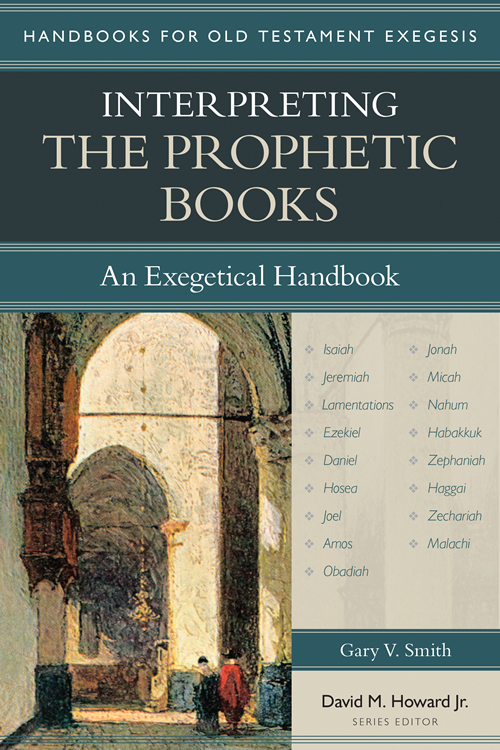NPP Righteousness versus Pauline Righteousness: The “Works of the Law”
In an excellent piece for Christianity Today entitled, “What Did Paul Really Mean?”, (w/thx to Filops!) Simon Gathercole called attention to the way New Perspective scholars interpret the phrase “the works of the law.” He writes:
According to the new perspective, Paul is only focusing on these aspects of Jewish life (Sabbath, circumcision, food laws) when he mentions “works of the law.” His problem isn’t legalistic self-righteousness in general. Rather, for Jews these works of the law highlighted God’s election of the Jewish nation, excluding Gentiles. Called by God to reach the Gentiles, Paul recognizes that Jews wrongly restricted God’s covenant to themselves.
Gathercole’s comment matches Dunn a little more than Wright, but neither scholar thinks “works of the law” means the achieving of merit through religious deeds. Certainly we can say it is doubtful if many Jews in the Second Temple period were ‘legalistic’ in the sense that they truly believed their works were good enough. But they were still going about to establish themselves by the law:
For, being ignorant of the righteousness of God, and seeking to establish their own, they did not submit to God’s righteousness. For Christ is the end of the law for righteousness to everyone who believes. – Romans 10:3-4
The plain fact is, the righteousness the Jews were striving for was not what God would call righteousness because it wasn’t the righteousness of God in Christ. “Grace” was not viewed within Second Temple Judaism in the Pauline sense:
To say that salvation in Judaism was by grace and imply that ‘works’ in the Lutheran sense were excluded is simply not true to Judaism. Nor should one expect that a Judaism that did not see humanity as fundamentally lost, nor requiring the death of God’s Son for its redemption, would construe the relation between divine grace and human works in the same way Paul did. – Stephen Westerholm, Perspectives Old and New on Paul: The “Lutheran” Paul and His Critics, 443-444
Because of this misunderstanding of grace, the Judaism’s interpretation of “the works of the law” was indeed that religious works were required for salvation. Hence, the offense of the Cross.
Furthermore, there is a big difference between the idea of imputed righteousness (Reformers) and inclusive communal righteousness which is not imputed (New Perspective).
If we take a passage like Romans 9:30-32 perhaps we can see this illustrated better:
What shall we say, then? That Gentiles who did not pursue righteousness have attained it, that is, a righteousness that is by faith; but that Israel who pursued a law that would lead to righteousness did not succeed in reaching that law. Why? Because they did not pursue it by faith, but as if it were based on works. They have stumbled over the stumbling stone. – Romans 9:30-32
Again, Dunn and Wright would say, “Yes, but the ‘works of the law’ are these external badges of status within the covenant, not religious works or works of merit.” If true, this would entail the verses underlined above would mean that because Israel’s faith was directed toward the emblems of the covenant and not the Lord [Christ] of the covenant, Israel had stumbled over the issue of Jesus and the salvation of the world. They did not realize that faith in the covenant and Messiah was not restricted to Israel. All nations now had access to the covenant people of God in Christ through the exercise of an ongoing faith in Him.
Faith, though, is not accounted as righteousness in a one-time legal sense because imputation is deemed absurd. Even N. T. Wright, for all his language about the propitiatory nature of Christ’s death, cannot accept the doctrine of imputation. As Waters writes,
Wright frequently avers that God at the cross ‘dealt once and for all with the sin of the world.’ A study of his comments on Christ’s death…in his recent commentary on Romans shows Wright’s consistent refusal to articulate Christ’s death in terms of an imputed righteousness…While Christ’s death may be said to be atoning, punitive, even propitiatory, Wright consistently refuses to detail the mechanism by which Christ’s death comes to be applied to the individual believer in time and history. – Guy Prentiss Waters, Justification and the New Perspectives on Paul: A Review and Response, 141-142.
However, in Romans 4:4-5 grace is equated with faith in Jesus Christ and is opposed to works. This then means that the supposed ‘grace’ that, according to the New Perspective, the Jews were thinking of when they were speaking of their privileged position within the covenant (i.e. their boundary markers of Sabbath and circumcision and so on), is not the same grace that Paul is speaking about. The grace that he is referring to is something given to a person when they accept Jesus Christ as Savior! Because of this grace, the sinner passes from death to life. Something happens to them; they are taken out of Adam and they are put into Christ! Grace does this, not works.
On another passage in Romans, Seifrid comments:
This Christological understanding of justification is especially apparent in Romans 5:12-21, where Paul summarizes his initial exposition of justification and hope, and restates his preceding argument in a new form. Up to this point in the letter he has presented justification as a matter of the standing of the individual before God; in this passage he sets it in the context of human history, which he defined in terms of divine judgment in Adam and grace in Christ. – Mark A. Seifrid, Christ, Our Righteousness: Paul’s Theology of Justification, 70
When this idea of “grace in Christ” is coupled with Paul’s words in Ephesians 2:8-9, one gains a true understanding of what “grace” is, and also what Paul means by “works.” Although Paul is dealing with Gentiles in Ephesians, (though there was a Jewish community there), he is working within the same frame of reference as in Romans 4 and 5:
For by grace you have been saved through faith. And this is not your own doing; it is the gift of God, not a result of works, so that no one may boast. For we are his workmanship, created in Christ Jesus for good works, which God prepared beforehand, that we should walk in them. – Ephesians 2:8-10
So “works” in Paul are either things we do because we are saved and have trusted in Christ, or they are deeds that we do because we’re trying to gain favor with God by them (i.e. “the works of the law” cf. Eph. 2:15). The former are only acceptable to God after we have been “created (ktizo) in Christ Jesus”. Indeed, they cannot be performed until after we are saved. The latter do not justify because they are performed outside of Christ. But in neither case does the term “works” mean emblems of status.
Conclusion
Though limited and simplified, I hope this has been something of a useful orientation to the New Perspective on Paul. The main issue as I see it is, as always, hermeneutical. In short, proponents of this position allow their relative comprehension of facets of Second Temple Judaism (roughly 500 B.C. to 70 A.D.) to cloud their reading of the New Testament, and especially of the Apostle Paul. Read as sufficient in itself, the New Testament sets out a clear picture of Jewish antagonism to the Gospel; not because of narrow covenantal boundary-markers, but because “seeking to establish their own righteousness, [they] have not submitted to the righteousness of God” – Romans 10:3.




4 comments On What is the “New Perspective on Paul”? – A Basic Explanation (Pt.4)
Hi Paul!
Link on Gathercole is bad. Here: http://www.christianitytoday.com/ct/2007/august/13.22.html
God bless d
Be sure to visit my Biblical Christianity web page and blog , and Pyromaniacs
Pastor, Copperfield Bible Church
Books: The World-Tilting Gospel (Kregel: 2011) God’s Wisdom in Proverbs (Kress Biblical Resources: 2011)
On Fri, May 3, 2013 at 2:54 PM, DR. RELUCTANT
Cheers! I’m going to link to your review of Sye T’s video btw.
God bless,
P
This strikes me as not a new perspective at all, but one of the oldest attempts to get salvation by works out of Paul. The claim the works of the law in Paul merely means the Jewish ceremonies and not basic moral principles. Having lived all my life among those who hold to the this view and use this argument, I am very familiar with it. You are correct that it does fit with Paul’s writings read carefully in context. Take Romans 7 where Paul uses as a example of what the law demands not Jewish ceremonies but covetousness. This is merely the recycling of a very old argument.
Indeed Mike!